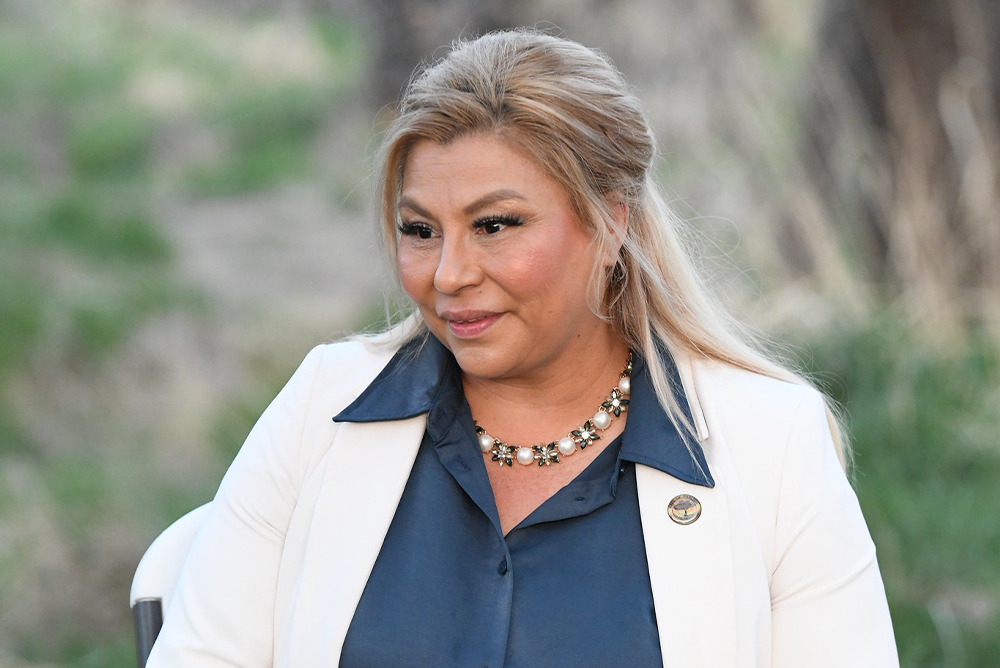
Photo by Stephanie Blakeman.
Alma Beltran is the mayor of Parlier, California, who was elected in 2014 while working as a correctional officer. Before joining the panel for the Zócalo/California Wellness Foundation event “What Would the End of Mass Incarceration Mean for Prison Towns?” in Susanville, California, she sat down in the green room to tell us about the changes she’d like to see in the criminal justice system, her favorite spot in the city she helms, and her greatest strength.
If you had the power to fix one thing in the criminal justice system, what would it be?
We need to address overcrowding. There are people that are in prison who shouldn’t be in prison—that’s part of the problem. Prop 47 is another one, it creates more victims and casualties that shouldn’t happen. And as far as living conditions, that’s a fixable thing. I remember working in there—and it was triple digits—and all they had was a swamp cooler and big fans.
What’s your favorite spot to go in Parlier?
I like to go to the park. We have a nice, beautiful park. It took us a while to get it. For small communities like Parlier, when we have something new everyone takes pride in it and enjoys it.
Who was your childhood hero?
My father. He’s a little bit like me. He’s always giving his two cents, whether or not he’s asked for it. He’s the type of man that always wants to help. He can get upset, but he can get over it real quick. I’m like that—I can get upset, but I can put it behind me and move forward. I look back at the past and he was always so supportive of everything I would do. It makes me feel good that he’s that proud of me.
What is something you learned while being a correctional officer?
That you don’t have to be tough. You go to training, and they train you to be tough because of what may happen. But I noticed you could do a lot more by being understanding and being fair across the board. The thing that I saw with inmates was they respected me. If they asked for some assistance, I would go out of my way to try and help them. It’s horrible to see a person try and get information for court and can’t do it because they depend on someone else to get it for them. It’s not fair because they have a right to that.
French fries or onion rings?
Onion rings. My kids are always saying, “Do you have to put onions in everything?!”
What are you watching these days?
I don’t watch the news, I’m tired of the negativity and division. I’m mostly on my Facebook page, to answer constituents. That’s pretty much what I do. I don’t have time to watch a TV show.
What is your greatest strength?
In politics you get attacked a lot, scrutinized a lot. I learned to let it roll off. If I could have inmates tell me things because they were angry or upset, and let that roll off, I could handle other people who were upset for not getting what they want.



